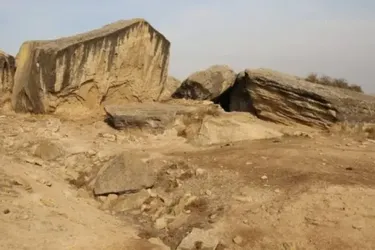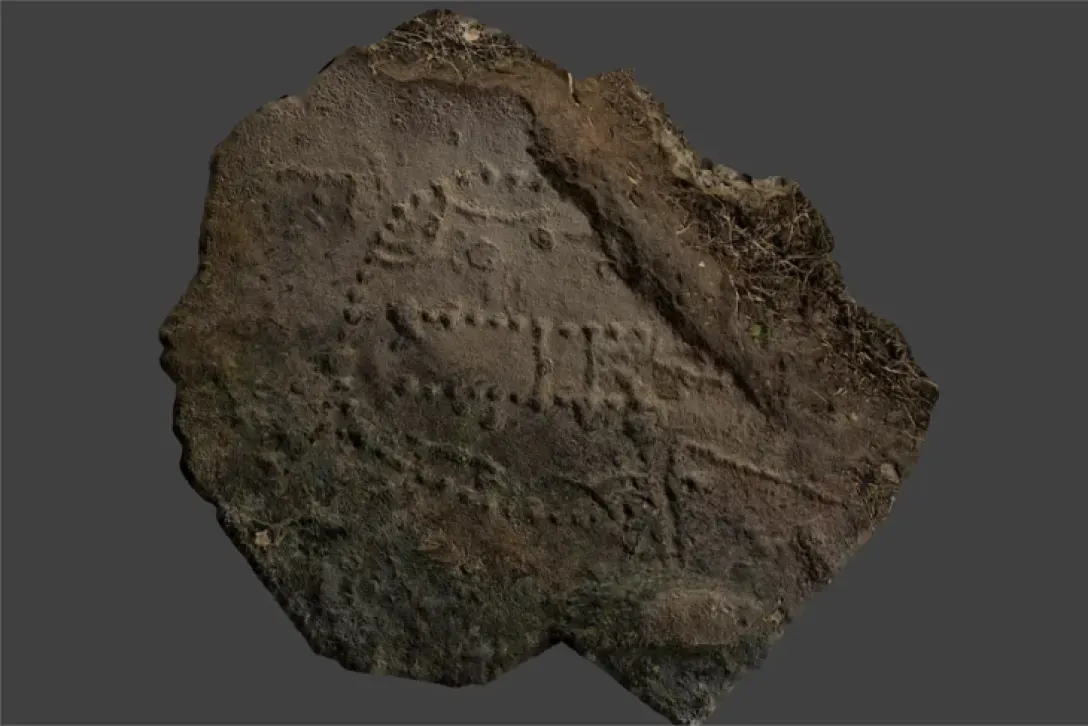Egypt is no longer the first: Azerbaijani treasure rewrote the history of the ancient world (photo)

A study of an ancient artifact discovered in Azerbaijan suggests that it may be the oldest known board for a game commonly referred to as Dogs and Jackals or 58-hole game. The artifact was found in 2018 on the Absheron Peninsula off the Caspian Sea coast.
It was reported by Arkeonews.
For a long time, it was believed that the first board games originated in Ancient Egypt. However, new research indicates that the origins of these games may be connected to Asia. Scientists have found that this game was widespread in the South Caucasus around the same period, which makes us reconsider its historical origin.
"Dogs and Jackals" is the name of the game that originated from the carved animal heads on some game pieces. It remained popular for many centuries, from the Bronze Age to the Iron Age. The game board, which has fifty-eight holes arranged in a certain sequence, dates back to the third millennium BC. The shapes of the chips varied depending on the region, and the design of the board, with lines connecting the holes, hinted at the complexity of the game rules.
In Egypt, the oldest known board of this type was discovered in the tomb of El-Assassif, dating from the period between 2064 and 1952 BC. This discovery, along with other finds in Mesopotamia, the Levant, and Anatolia, led archaeologists to hypothesize that the game could have originated in Egypt or Southwest Asia.
However, recent discoveries on the Apsheron Peninsula refute this theory. The best-preserved specimen was found in the Gobustan National Reserve, in the Chapmali rock shelter, near the Caspian Sea. Researchers suggest that this specimen belongs to the Middle Bronze Age, which indicates that the game was widespread in this region much earlier than previously thought.
Walter Christ and Rahman Abdullayev, the authors of the study, note the similarity of the patterns of shallow depressions and narrow channels to other boards found in southwest Asia and Egypt.

Other examples of the game have been found at sites such as Agashdüzü, Yeni Türkan, and Dubendi. The location of these boards at sites such as Chapmali suggests that the game was important in everyday life, especially during the winter when shepherds sought shelter.
This theory is supported by fragments of pottery found at these sites, which indicate the seasonal presence of pastoral communities. Along with older Middle and Late Bronze Age artifacts, the finds include pottery from the Khojaly-Gadabai culture, which dates from the 13th to 7th centuries BC. The periodic settlement of these territories indicates that the same groups of people with similar cultural traditions could return here for a long time.
If you want to get the latest news about the war and events in Ukraine, subscribe to our Telegram channel!
